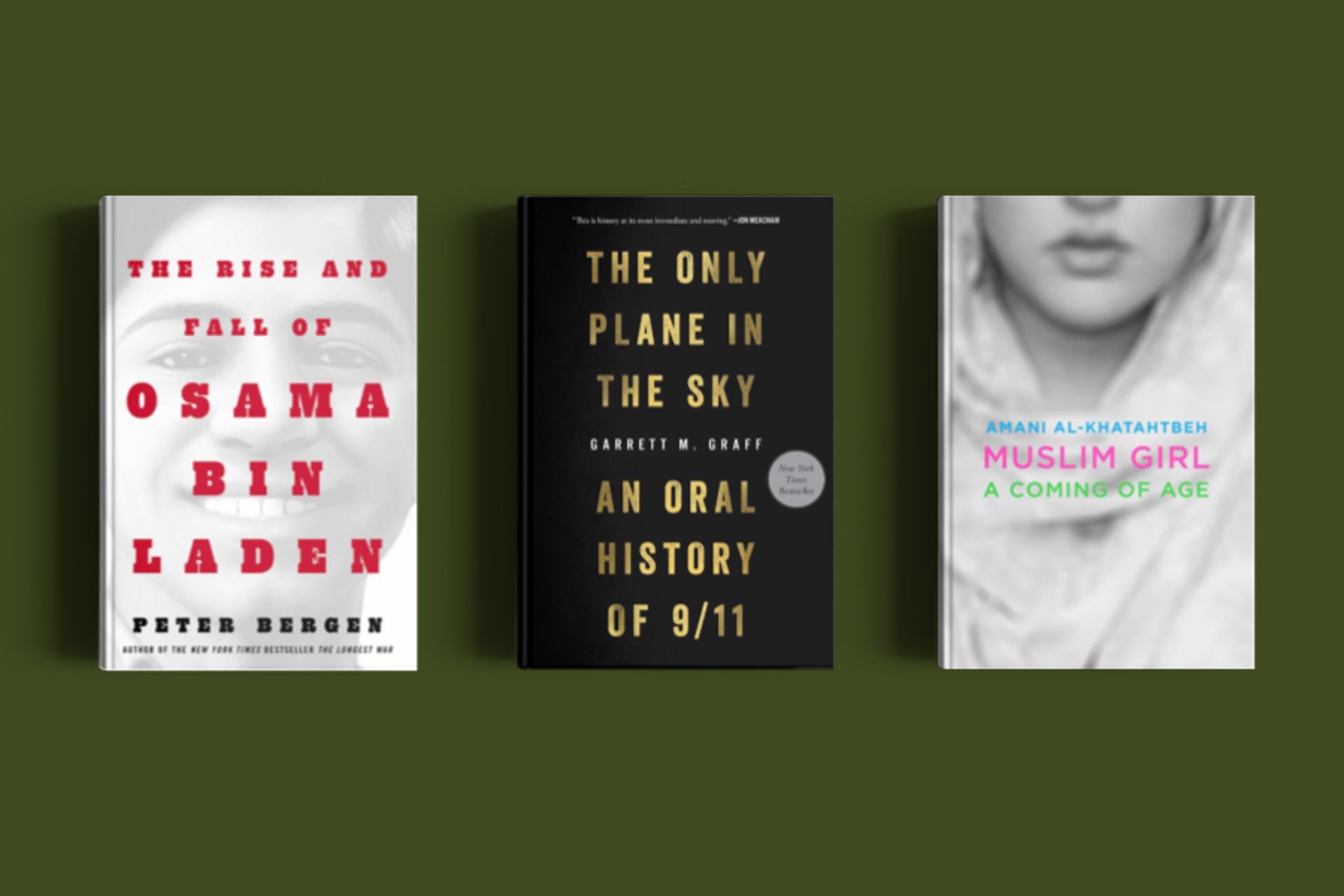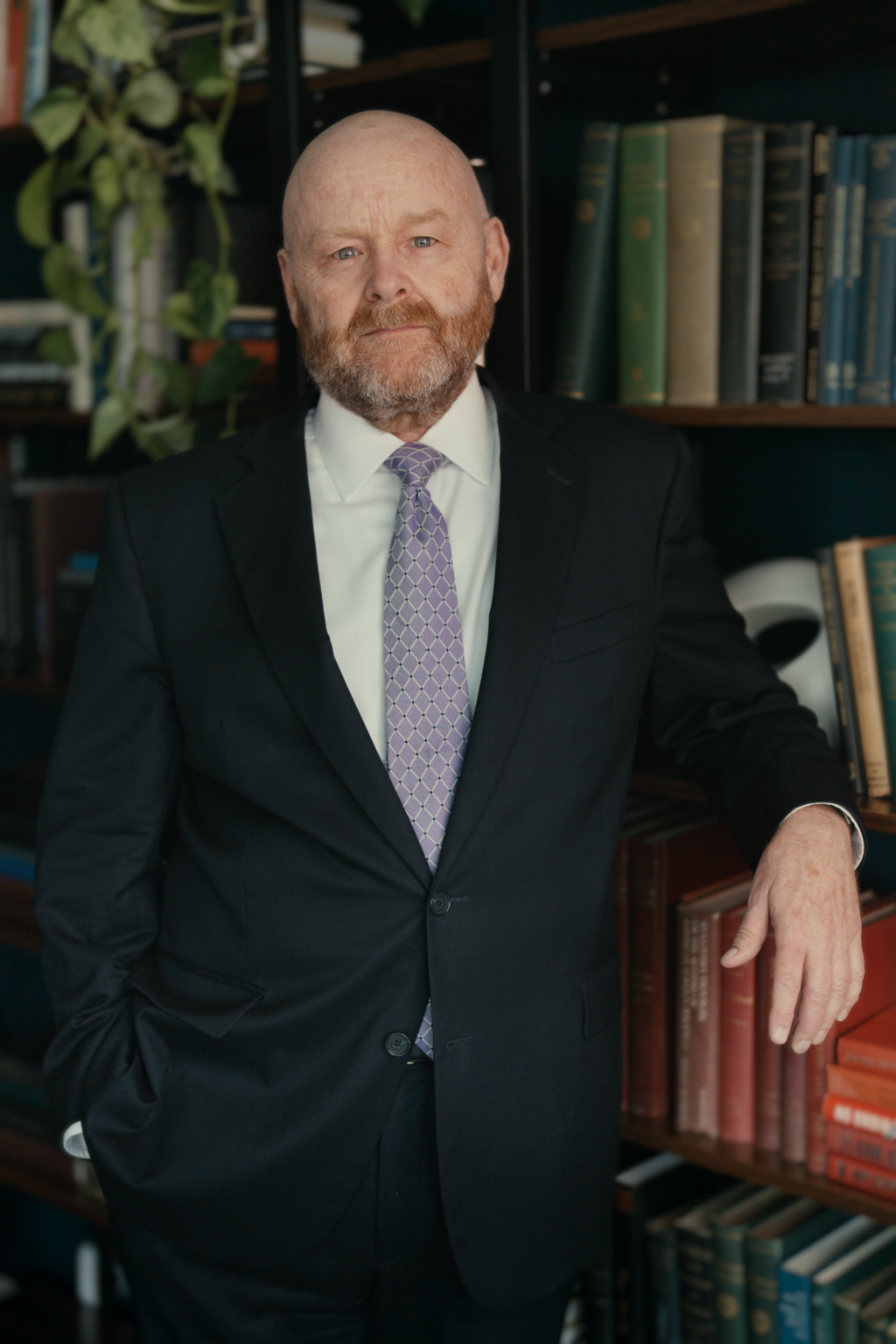Seven More Books Worth Reading About 9/11 and Its Aftermath
With the twentieth anniversary of the September 11, 2001, terrorist attacks approaching, we recommend sources for better understanding 9/11 and its aftermath. This week: seven books worth reading.

By experts and staff
- Published
Experts
![]() By James M. LindsayMary and David Boies Distinguished Senior Fellow in U.S. Foreign Policy
By James M. LindsayMary and David Boies Distinguished Senior Fellow in U.S. Foreign Policy
Next month marks the twentieth anniversary of the September 11, 2001, terrorist attacks on the World Trade Center in New York City and the Pentagon in Washington, DC. Nearly 3,000 people were killed in the attacks. The ages of victims ranged from two to eighty-five. The attacks devastated the lives of the victims’ families, and forever altered the course of U.S. society, history, and foreign policy. As this week’s events in Afghanistan show, the ripples of 9/11 remain with us.
In the weeks leading up to the anniversary of 9/11, my colleague Anna Shortridge and I will be recommending sources for learning more about 9/11 and its consequences. We’ll be looking at movies, documentaries, podcasts, and online exhibits among other things.
To start things off, we’re providing book recommendations. Ten years ago, I wrote a blog post naming what I saw as the Seven Best Books on 9/11 and the U.S. Response. A decade later, it’s time to update the list. In choosing seven more books, we stuck to the two rules that guided the earlier list. First, the books had to be about the 9/11 attacks or the aftermath. Second, to avoid any conflicts of interest and the need to pick among friends, books written by our CFR colleagues, past or present, or by past co-authors, are off limits. That’s why terrific books like Gayle Lemmon’s Ashley’s War and Phil Gordon’s Losing the Long Game don’t appear below.
In alphabetical order, here are our seven recommendations:
Amani Al-Khatahtbeh, Muslim Girl: A Coming of Age (2016). Amani Al-Khatahtbeh, the founder and CEO of the media site Muslim Girl, was nine years-old and living in East Brunswick, New Jersey on September 11, 2001. Her memoir tells what it was like to grow up as a Muslim American child in a post-9/11 America rampant with anti-Muslim sentiment. The New York Times’s reviewer wrote that Al-Khatahtbeh offers “an account that should both enlighten and shame Americans who read it.”
Peter Bergen, The Rise and Fall of Osama bin Laden (2021). Bergen is a journalist who started covering Osama bin Laden long before 9/11. In writing bin Laden’s biography, Bergen draws on both interviews with those closest to him and on documents that Navy SEAL Team Six seized in the raid on bin Laden’s secret compound in Abbottabad, Pakistan. Princeton University Professor Bernard Heykal concluded that “Bergen is particularly perceptive about the American government’s reaction to the rise of bin Laden and the jihadist phenomenon. The initial approach was mostly myopic and later tragically helped boost the jihadist movement.”
Steve Coll, Directorate S: The C.I.A. and America’s Secret Wars in Afghanistan and Pakistan (2018). Coll, a staff writer at The New Yorker and dean of the Graduate School of Journalism at Columbia University, made the last list with the Pulitzer Prize-winning Ghost Wars, which looked at how Afghanistan helped give rise to al-Qaeda before 9/11. In Directorate S, Coll focuses on the post-9/11 efforts of the United States to combat the Taliban and al-Qaeda in Afghanistan and Pakistan. Kirkus Reviews praised it as “an impeccably researched history of ‘diplomacy at the highest levels of government in Washington, Islamabad, and Kabul.’”
Garrett M. Graff, The Only Plane in the Sky: An Oral History of 9/11 (2019). Graff is a former editor of Politico who set out to compile the first comprehensive oral history of 9/11. Collaborating with oral historian Jenny Pachucki, Graff compiled nearly 500 oral histories with victims’ families, survivors and their families, government officials, and a host of others who felt the impact of that day. The result, as NPR’s Scott Detrow described it, is “a powerful, graphic narrative of how Sept. 11 played out everywhere from the International Space Station to the inside of the collapsing World Trade Center towers.”
Alice M. Greenwald (Editor), No Day Shall Erase You: The Story of 9/11 as Told at the National September 11 Memorial Museum (2016). If you can visit the 9/11 Memorial and Museum in New York City, you must. If you can’t, read No Day Shall Erase You. It uses essays and photographs of museum exhibits to explore the events of 9/11. Publisher’s Weekly hailed it as “a tribute to those who died on 9/11 as well as a powerful exploration of collective memory.”
Cathy Scott-Clark and Adrian Levy, The Exile: The Stunning Inside Story of Osama bin Laden and Al Qaeda in Flight (2017). Journalists Scott-Clark and Levy detail how bin Laden kept off the radar in the ten years from 9/11 until Navy SEAL Team Six landed at his Abbottabad compound in May 2011. The Exile also explore how members of his family and others close to him evaded U.S. and Western intelligence services, including by seeking refuge in Iran. Kirkus Reviews called The Exile as “a tour de force of investigative research.”
Mitchell Zuckoff, Fall and Rise: The Story of 9/11 (2019). Zuckoff covered 9/11 and its aftermath for the Boston Globe. In Fall and Rise, he creates a timeline of the events of September 11, 2001, using government studies and documents as well as the individual stories of survivors, witnesses, and victims. Zuckoff says he wrote Fall and Rise “to delay the descent of 9/11 into the well of history.” He succeeded. Fall and Rise is “painful to read,” as Clyde Haberman of the New York Times put it, because even with the passage of time “reliving modern America’s most terrible day hits an exposed nerve that you thought had been fully numbed, only to discover that the ache was merely in remission.”
Next week we will recommend podcasts about 9/11 and its consequences.
Here are the other entries in this series:
- More Resources Worth Exploring About 9/11
- Seven Reflections Worth Reading About 9/11
- Seven Documentaries Worth Watching About 9/11
- Seven Movies Worth Watching About 9/11
- 9/11 Online Exhibits and Resources Worth Viewing
- Seven Resources Debunking 9/11 Conspiracy Theories
- Seven Podcasts Worth Listening to About 9/11
